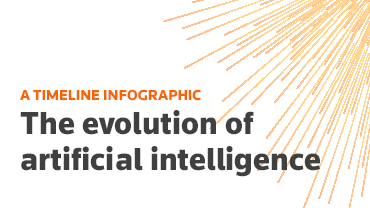Intel Corp. Inv. Policy Comm. v. Sulyma, 2020 WL 908881 (U.S. 2020)
Available at https://www.supremecourt.gov/opinions/19pdf/18-1116_h3cj.pdf
A plan participant sued the investment committee and plan administrators of his former employer’s retirement plans (including a 401(k) plan), asserting that those fiduciaries breached their fiduciary duties by overinvesting plan funds in assets such as hedge funds, private equity, and commodities. The fiduciaries argued that the suit was untimely because ERISA generally requires fiduciary breach lawsuits to be filed by the earlier of six years after the breach occurs or three years after the claimant has “actual knowledge” of the breach. According to the fiduciaries, the suit was filed more than three years after information about these plan investments had been disclosed to the participant, providing the participant with actual knowledge. The participant contended that he did not remember reviewing specific disclosures and had been unaware that his retirement plan funds were invested in hedge funds or private equity. A trial court ruled for the fiduciaries without a trial, but the Ninth Circuit reversed, holding that actual knowledge requires actual awareness of the facts constituting the breach, not merely access to the facts. Because another appellate court had construed this actual knowledge standard to require only proof of sufficient disclosure, the U.S. Supreme Court accepted the appeal to resolve the split among circuits.
Noting that plain statutory language must be enforced according to its terms, the Court cited regular and legal dictionary definitions indicating that “actual knowledge” means something that an individual is actually aware of, and is distinct from imputed or presumed knowledge. The Court emphasized that, elsewhere in ERISA, Congress has established limitations periods based on when an individual “acquired or should have acquired” actual knowledge relating to a potential claim. Given that “Congress has repeatedly drawn a ‘linguistic distinction’ between what an ERISA plaintiff actually knows and what he should actually know,” the Court declined to infer such a distinction when not explicitly stated. The fiduciaries argued that once a participant has received plan disclosures, the participant “has” the knowledge because it can be reasonably acquired from the materials. But the Court again pointed to Congress’s language choice in rejecting this and similar arguments, explaining that this interpretation would turn the provision into a constructive, rather than actual, knowledge requirement. To preserve the meaning of “actual,” the Court unanimously affirmed the Ninth Circuit’s ruling, but noted that its decision does not prevent the fiduciaries from proving that the participant had actual knowledge based on the plan’s disclosures—which included an SPD, QDIA notice, “fund fact sheets,” and annual disclosures for participant-directed individual account plans—and on records of his visits to the plan’s investment information website. But actual knowledge must be proven by appropriate evidence presented to the trial court (where this case now returns), not assumed based on the furnishing of disclosures.
EBIA Comment: It may seem that this interpretation invites participants to claim ignorance to take advantage of the longer statute of limitations. But, as the Court noted, there are ways to demonstrate that an individual had actual knowledge—including circumstantial evidence and evidence of willful blindness. Establishing actual knowledge by those means, however, will require more time, effort, and expense than simply showing that relevant disclosures were made. For more information, see EBIA’s 401(k) Plans manual at Section XXXVII.H.3 (“Time Limits for Filing Fiduciary Breach Claims”). See also EBIA’s ERISA Compliance manual at Section XXVIII.I.8 (“Litigating a Breach of Fiduciary Duty Claim”).
Contributing Editors: EBIA Staff.







